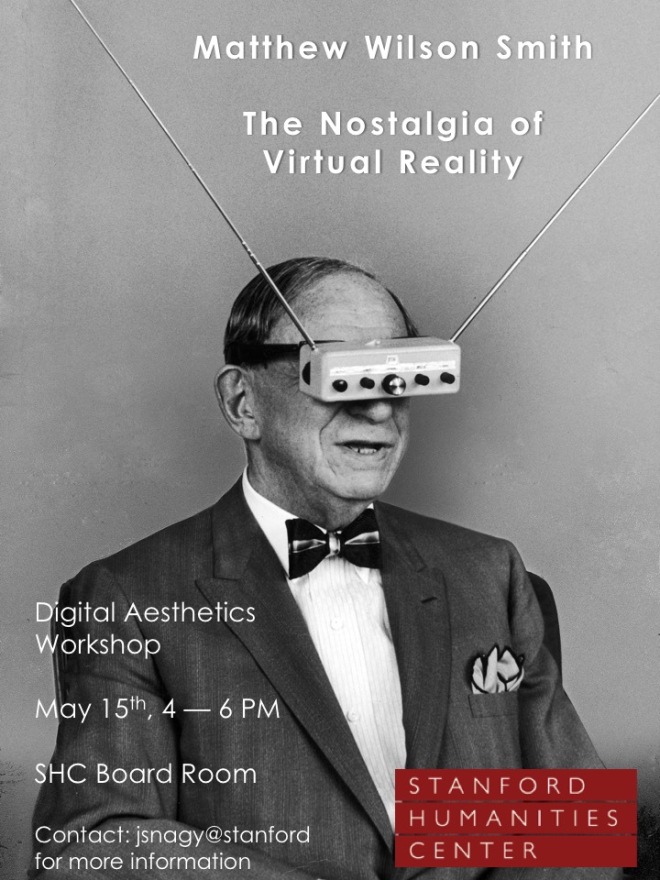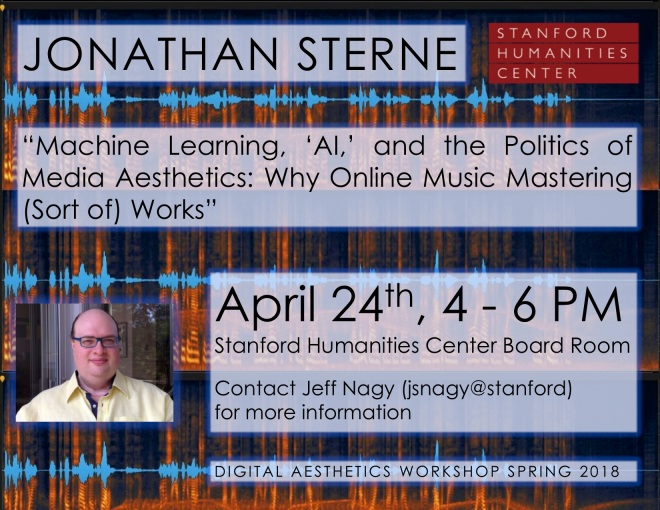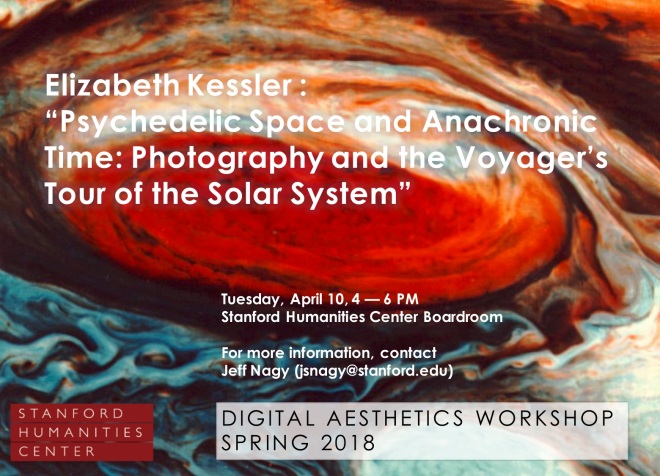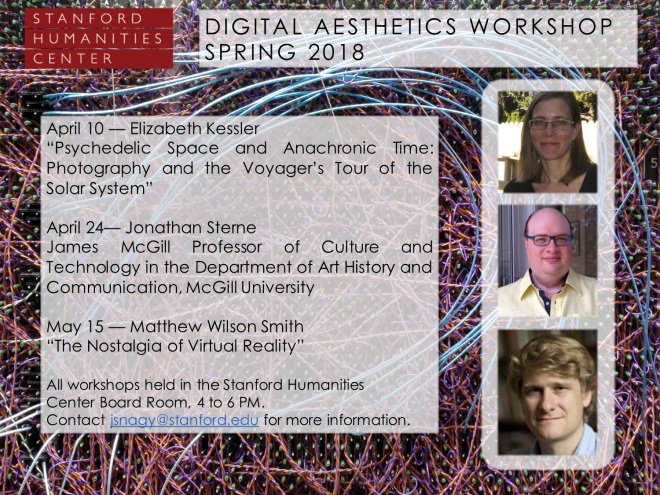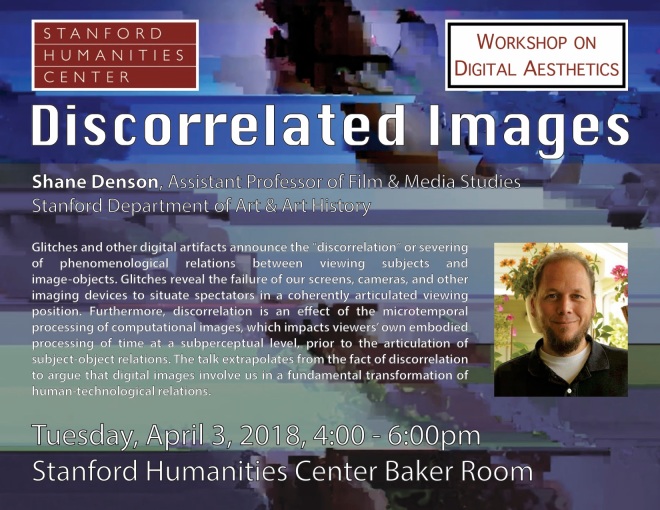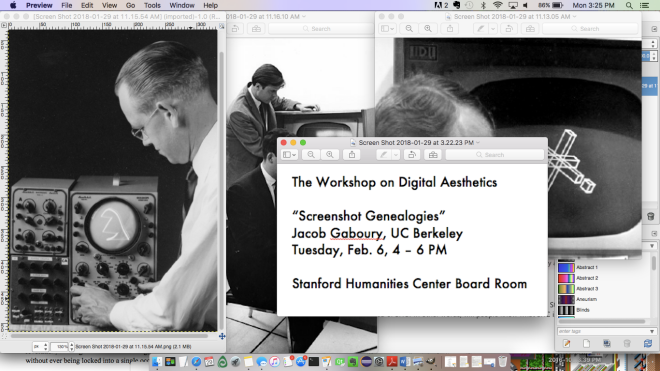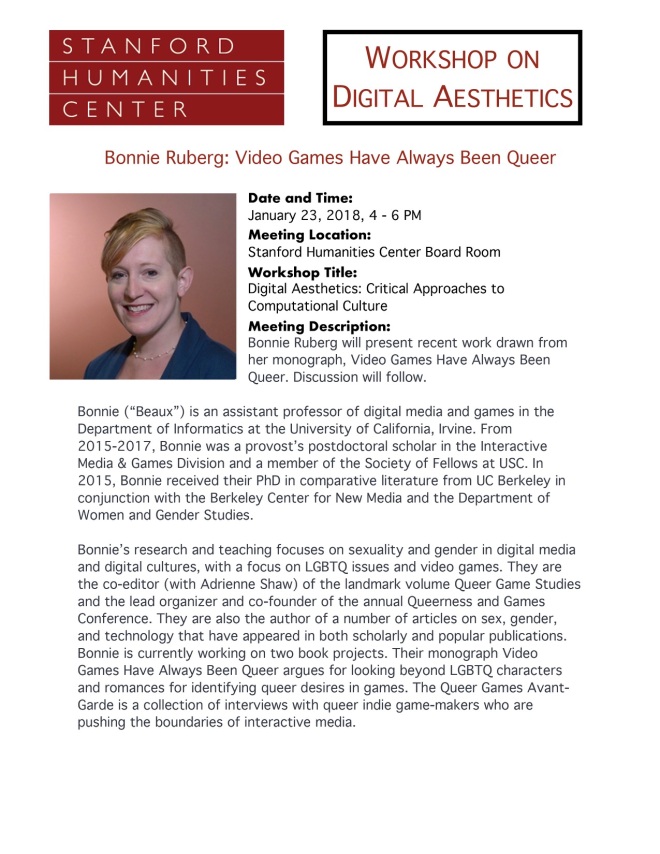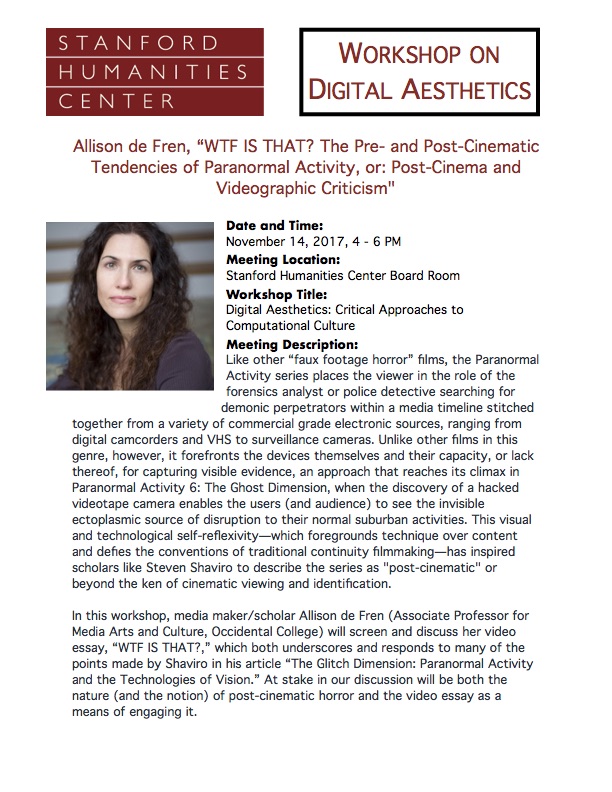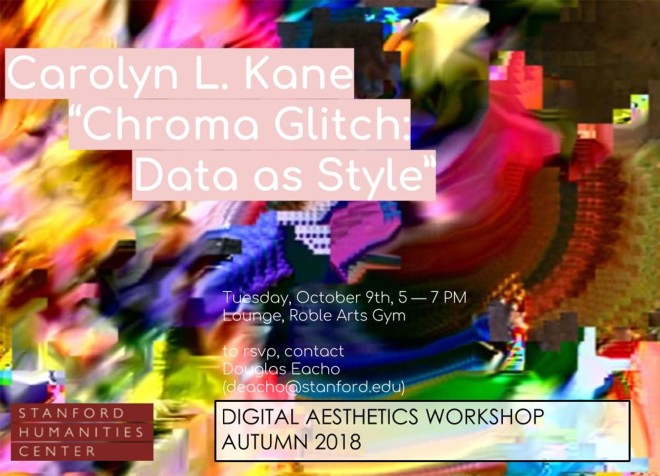
The Digital Aesthetics Workshop at the Stanford Humanities Center is entering its second year, and we are pleased to announce the first event: Carolyn L. Kane will share some of her current research with us, under the title Chroma Glitch: Data as Style. The discussion will encompass Takeshi Murata, Ryan Trecartin, and datamoshing, all within Kane’s broader project, tentatively titled Precarious Beauty: Glitch, Noise, and Aesthetic Failure. There will be a paper pre-circulated ahead of the talk; we will pass it along a week ahead of the event. We are thrilled Dr. Kane can join us – when we first came up with this idea for a workshop, her name became a token for the sort of scholarship we would want to bring in. She will launch a year already filling up with exciting speakers and a new graduate colloquium (more on that to come).
Carolyn L. Kane is the author of the award-winning Chromatic Algorithms: Synthetic Color, Computer Art, and Aesthetics after Code (U Chicago, 2014). [You can learn more about this fascinating project through this interview in Theory, Culture & Society.] She earned her Ph.D. from New York University’s Dept. of Media, Culture, and Communication in 2011, and was awarded the Nancy L. Buc Postdoctoral Fellowship in “Aesthetics and the Question of Beauty” at Brown University in 2014. From 2011 to 2014 she taught at Hunter College; she is now Associate Professor of Communication and Design at Ryerson University in Toronto.
This event will be held from 5-7p on Tuesday, Oct 9, 2018 at the Roble Arts Gym Lounge (TAPS department). Drinks and snacks will be served. Please RSVP to Doug Eacho (email in image above) if you can, and share widely.
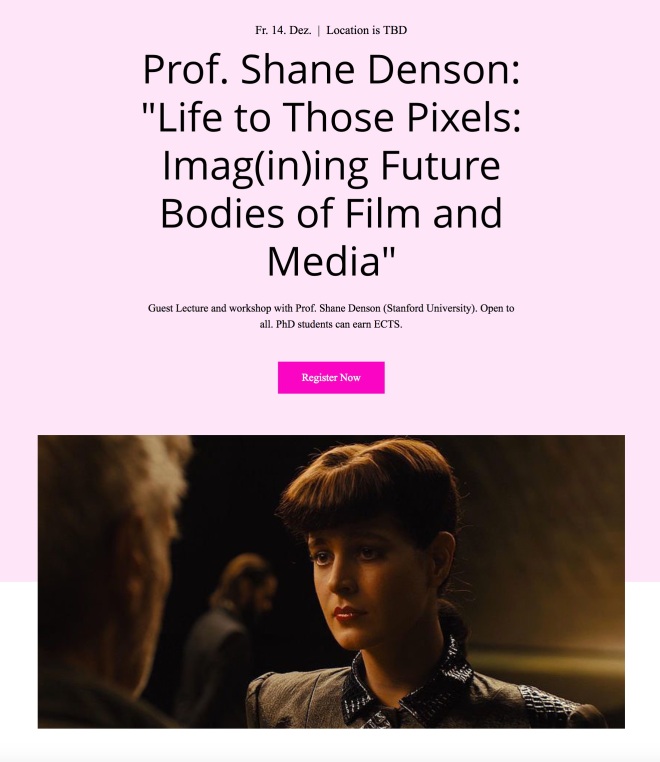 On December 14, 2018, I will be giving a talk titled “Life to Those Pixels: Imag(in)ing Future Bodies of Film and Media” at the University of Zurich, as part of the Imag(in)ing Future Bodies series hosted by the Doctoral Program of the English Department and organized by Morgane Ghilardi and Hannah Schoch. The lecture will be followed by a workshop in which we will discuss related work on post-cinema and discorrelated images.
On December 14, 2018, I will be giving a talk titled “Life to Those Pixels: Imag(in)ing Future Bodies of Film and Media” at the University of Zurich, as part of the Imag(in)ing Future Bodies series hosted by the Doctoral Program of the English Department and organized by Morgane Ghilardi and Hannah Schoch. The lecture will be followed by a workshop in which we will discuss related work on post-cinema and discorrelated images.


